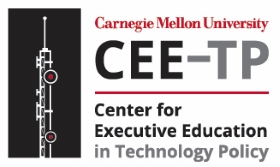Enabling Greater Diversity in Participation and Leadership in Telecommunications on a National, Regional and Global Basis
Instructors
- Jennifer A. Manner, Senior Vice President of Regulatory Affairs for EchoStar Corporation and Chair of the Network of Women for CITEL for the 2023 World Radiocommunications Conference (NOW4WRC 23) and former Deputy Bureau Chief at the U.S. Federal Communications Commission
- Dr. Kim Mallalieu, Deputy Chairman of the Board of the Telecommunications Authority of Trinidad and Tobago, senior lecturer and Leader of the Communication Systems Group in the Department of Electrical and Computer Engineering at The University of the West Indies, and Vice Chair (AMS) of the Network of Women in ITU Development Sector, ITU-D
This one-day in-person course will provide government officials with the why and how to enable greater diversity in participation and leadership in telecommunications on a national, regional, and global basis. It takes explicit account of national obligations under UN treaties as well as the gains that flow from diverse representation at statutory and other meetings of the International Telecommunication Union; and regional telecommunication organizations such as the Asia-Pacific Telecommunity (APT), African Telecommunications Union (ATU), European Conference of Postal and Telecommunications Administrations (CEPT), Inter-American Telecommunication Commission (CITEL), League of Arab States (LAS) and Regional Commonwealth in the Field of Communications (RCC). The course walks through real-life examples of how diversity has been successfully addressed, and shares strategies, mechanisms and artefacts that may be adopted or adapted.
Description
It is well-established that there is need for greater diversity in participation and leadership in telecommunications policy development and decision-making on a national, regional, and global basis. This is necessary to achieve national, regional, and global goals to solve the digital divide. This course will begin discussions on some of the recent actions calling for greater diversity, most recently at the ITU Plenipotentiary Conference (2022). We will demonstrate why increasing diversity in national, regional and international regulatory and policy-making bodies is critical from economic, social, and sustainability lenses. We will then talk about how countries can achieve greater diversity on a national, regional, and international level. We will delve into best practices and look at examples from specific countries, as well as regionally and internationally. We will then share where we are and some of the recent successes including the recent election of the first woman in over 150 years of the ITU and the election of the youngest person ever at the ITU. We will also touch on other successes like the recent Youth Summit held by the ITU’s World Telecommunications Development Conference. We will conclude the course by discussing what can be done going forward and working with seminar attendees to plan paths forward.
Target Audience
This course is intended for managers and above at regulatory authorities and ministries. The course is especially useful to those who are involved in regional and international bodies, but this is not required.
Learning Outcomes
Upon completing the course, participants will be able to:
- identify key national commitments related to diversity
- provide evidence of the benefits of diversity
- evaluate status of country’s diversity in telecommunications representation according to key metrics
- create context-appropriate strategies to increase and evaluate diversity in representation at national, regional and international telecommunications fora
Prior knowledge
No prior knowledge is required, except a general understanding of the importance of increasing diversity.
